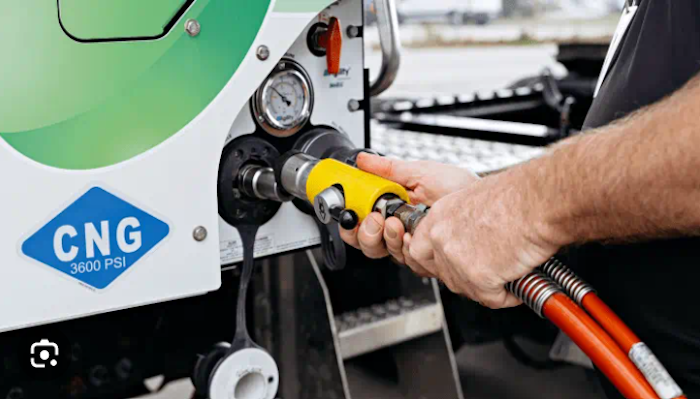In a strategic move to accelerate Nigeria’s clean energy transition, the federal government on Tuesday officially launched a concessionary gas pricing framework for Compressed Natural Gas (CNG), aimed at reducing fuel costs in the autogas sector and deepening adoption of alternative energy solutions nationwide.
The announcement was made at the ‘Mobility CNG Supply Framework Kick-off Event’ in Abuja by Michael Oluwagbemi, Chief Executive of the Presidential CNG Initiative (PCNGI), who likened the initiative to the gas-to-power pricing model already in use in the electricity sector.
Under the framework, autogas CNG is now priced significantly lower than gas allocated for power generation or industrial use—reflecting its designation as a strategic national priority. The pricing model was approved by the Nigerian Midstream and Downstream Petroleum Regulatory Authority (NMDPRA) to catalyze demand and support the federal government’s energy reform agenda under President Bola Tinubu.
“What we’re doing today is flagging off the implementation of the concessionary pricing framework. We’re structuring the market to ensure organized demand, transparent supply, and fair pricing,” Oluwagbemi said.
He reported explosive growth in the autogas market over the past year. The number of CNG refueling “daughter stations” has tripled from just 20 to over 65, with an additional 27–28 new stations set to come online in the next five weeks. Major industry players, including Dangote Group, have committed to building another 100 stations, on top of the 175 already under construction.
Vehicle adoption is also surging: CNG-powered vehicles increased from 4,000 to over 50,000 in one year, with projections to reach between 125,000 and 300,000 units by the end of 2025.
“Our goal is to lay the groundwork for 1 million CNG vehicles. If we cross 250,000 this year, that’s a major success,” he said, while emphasizing that private sector participation will be the key driver of conversion scale.
Chijioke Uzoho, Managing Director of Gas Aggregation Company of Nigeria (GACN), praised the collaborative efforts behind the initiative. He said the Mobility CNG Supply Framework ensures full accountability from gas sourcing to final distribution, offering a transparent and standardized operational structure.
“This framework is a game-changer,” Uzoho stated. “Every molecule of gas delivered will be tracked, regulated, and made available at a price that supports mass-market adoption.”
The concessionary pricing scheme is expected to significantly lower the cost of autogas, reduce pressure on petrol imports, and support Nigeria’s broader energy diversification goals.
